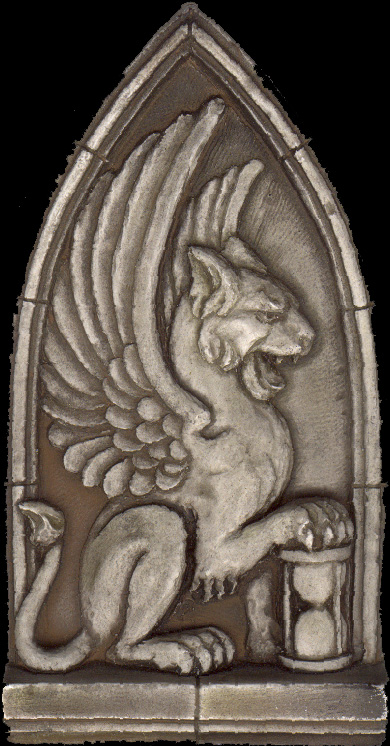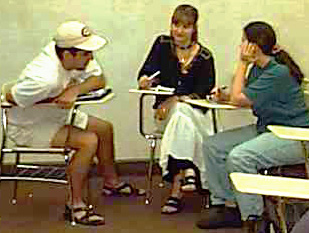
- ENV-280
- Syllabus
- Tools
of Toil: History
of Technology
- Siry
| To excel in the class you must perform well in these assigned activities: |
| # |
What |
When |
Value |
1 |
Active participation in class |
Daily |
|
|
Asking text-based questions, preparing group work & summaries,
e-mail responses to questions, oral interp of texts, & arriving on time. |
20% |
2 |
Homework, interviews of three of five people |
Aug. 31, Sept. 7 th, 12 th. |
10% |
3 |
Problem essays: analysis |
Monthly, 9-28 th & 11-9 th. |
30% |
4 |
Midterm -- “radio drama debate” from books |
Oct. 10 th - 17 th. |
15% |
5 |
Term Research Project - Archives & Gov. docs. |
Nov. 16 th, 30th. |
15% |
6 |
Final Exam Oral Presentation of findings |
Dec. 7 th; 2PM-4PM |
10% |
Sum |
|
100% |
This 4 credit hour course is an intensive reading class, where note taking, homework and redrafting the essays several times are expected of you so that you practice to improve existing research skills.
Assignments
I am here to assist you in creating excellent, intelligent and meaningful work based on critical thinking and practicing your expressive and reflective abilities. To do this I ask you to meet with me individually, at least twice in the term, to discuss your project’s progress (two class days off for meeting with me). Projects rely on use of the Olin library, or College Archives & Government Documents where we visit to augment themes derived from the readings.
You are expected to do your own work and to give proper credit to others for using their ideas. Your failure to responsibly attribute ideas, phrases and sentences of others by a note in the text --called plagiarism-- is grounds for losing your education at Rollins College, because you have committed fraud. Trust is the basis of academic life. All of your work must be referenced.
For every hour in class, I expect you to study for four hours because I reward your hard work and revising your assignments for clearer descriptions and logical arguments.
Item due description
Late work is unacceptable & will be penalized –7%. Missing assignments count as a zero.
Homework What is Technology: just what evidence is there that people understand it?
1st problem: Technologies play what role in sustaining our contentment?
2d problem: What makes any technological change an important problem?
3d problem: Do the four facets of tools actively promote humane purposes?
Interviews:
Individual meetings to review your notes from the texts --that form the evidence for answering these questions above-- are to be scheduled and assessed on a pass/fail basis. In September & November these are done to approve your project and assay your progress (On or before November 1).
Term-long Project
Final Exam
Late work is unacceptable & will be penalized. Missing assignments count as a zero. Be prepared!
Readings by short titles of chapters & selections from Authors

The focus of this class is how technology, particularly the tools we use, help to identify who we are, what we believe, how well we live and to what degree the entire world is created, maintained by and infused by mechanical, technical, automated and manual systems of tools.
Edward Hopper, “Manhattan Junction (railway station)”

writers
| grading criteria | excelling in class
| Homework | due dates | Course Overview

Each writer that
we read has a very different perspective on what a technological society demands of us and how we arrived at this fork in the historical road.
By using their voices to enhance your contributions to the discussion of how
well we listen to the sounds of new technology you must interpret how and to what extent technology is transforming the planet,
its ecological life support system, & its biological diversity from which
ultimately our economic livelihoods are derived. You will be asked to interpret
and evaluate the arguments of each author so that together you may use their
voices to enlarge the range of your own intellectual curiosity, expressive talents,
and commercial skills.
Home
page for history of technology
 Texts
to read and interpret:
Texts
to read and interpret:
Technology
related pages.
<Under
Construction>
Home
page for history of technology

writers | grading criteria | excelling in class | Homework | due dates | Course Overview

All assignments
are graded with careful attention to each of these criteria: {CLIFS}
1. clarity, coherence,
spelling, grammar, rationality & logical consistency.
2. length &
development of your concepts, arguments, thematic ideas, or presentations.
3. informative
value of evidence from the class texts, library research, or interviews.
4. frequency of
examples from the lectures, journal, notes & readings.
5. substantial
discussion of the subject & introductions, summaries, conclusions.
§
§ §
Speaking Etiquette:
Speak so that everyone understands
and address your written and spoken work to the class as your audience. In order
to sharpen your analysis, I require clear communication r in this
course that also sustains 4 goals of citizenship in relation to your improving
your speaking ability:
one:
to put you more at ease
to ask appropriate questions in job interviews.
two:
to practice your analytical
ability as the member of a project team or jury.
three:
to feel more confident in
giving formal and logical testimony or presentations.
four:
to create an opportunity
to see and practice qualities of good speaking.
Home
page for history of technology

writers | grading criteria | excelling in class | Homework | due dates | Course Overview

 Class
time is spent on comparing oral & written interpretations
of assigned readings.
Class
time is spent on comparing oral & written interpretations
of assigned readings.
Everyone over the course
of the term will be asked to orally interpret the readings and express their
writings for the rest of the class in a variety of informal and more structured
formats.
I truly value your paying
attention to others and not interrupting them.
These activities -- including
free writing, group exercises,
and problem solving, answering questions or leading discussions --are done to
increase the classes’ comprehension.
The terms of this syllabus are
subject to reasonable changes stated in class.
Home
page for history of technology
§§§
This 4 credit hour course is an
intensive reading class, where note taking, homework and
redrafting the essays several times are likely so that you practice to improve
existing skills.
Home
page for history of technology
Last
Updated on"
28 August, 2006
by Joseph Siry
Course overview
and Techological Complexes
Pursell
| Pacey | Postman
| Kaku

writers | grading criteria | excelling in class | Homework | due dates | Course Overview




